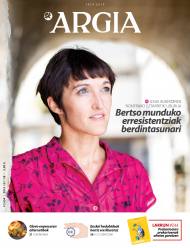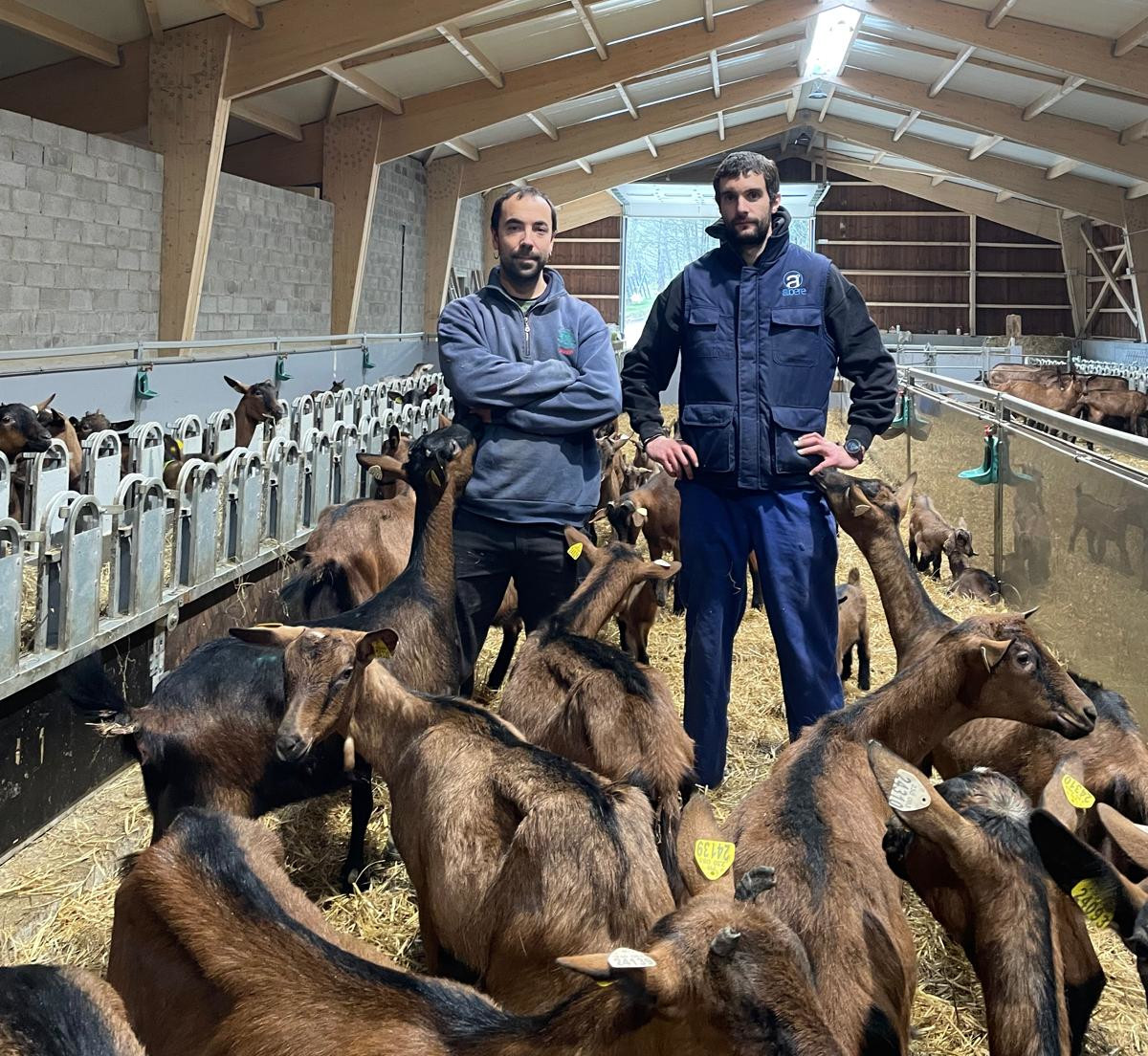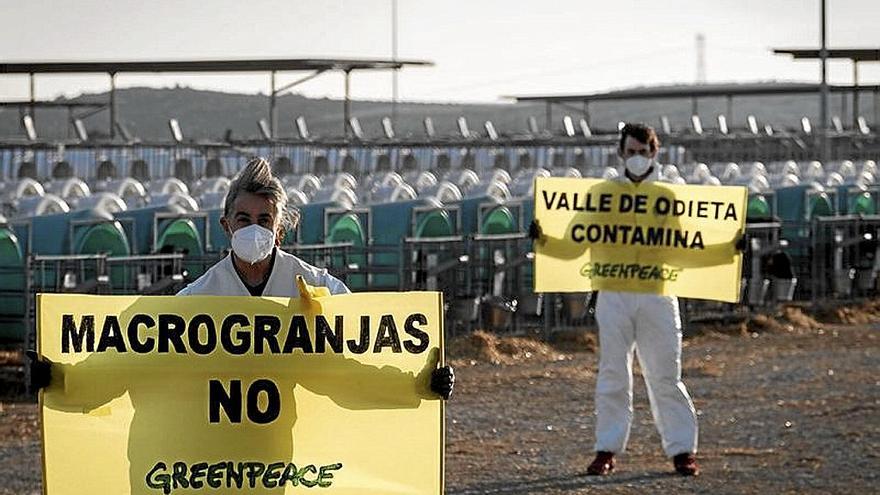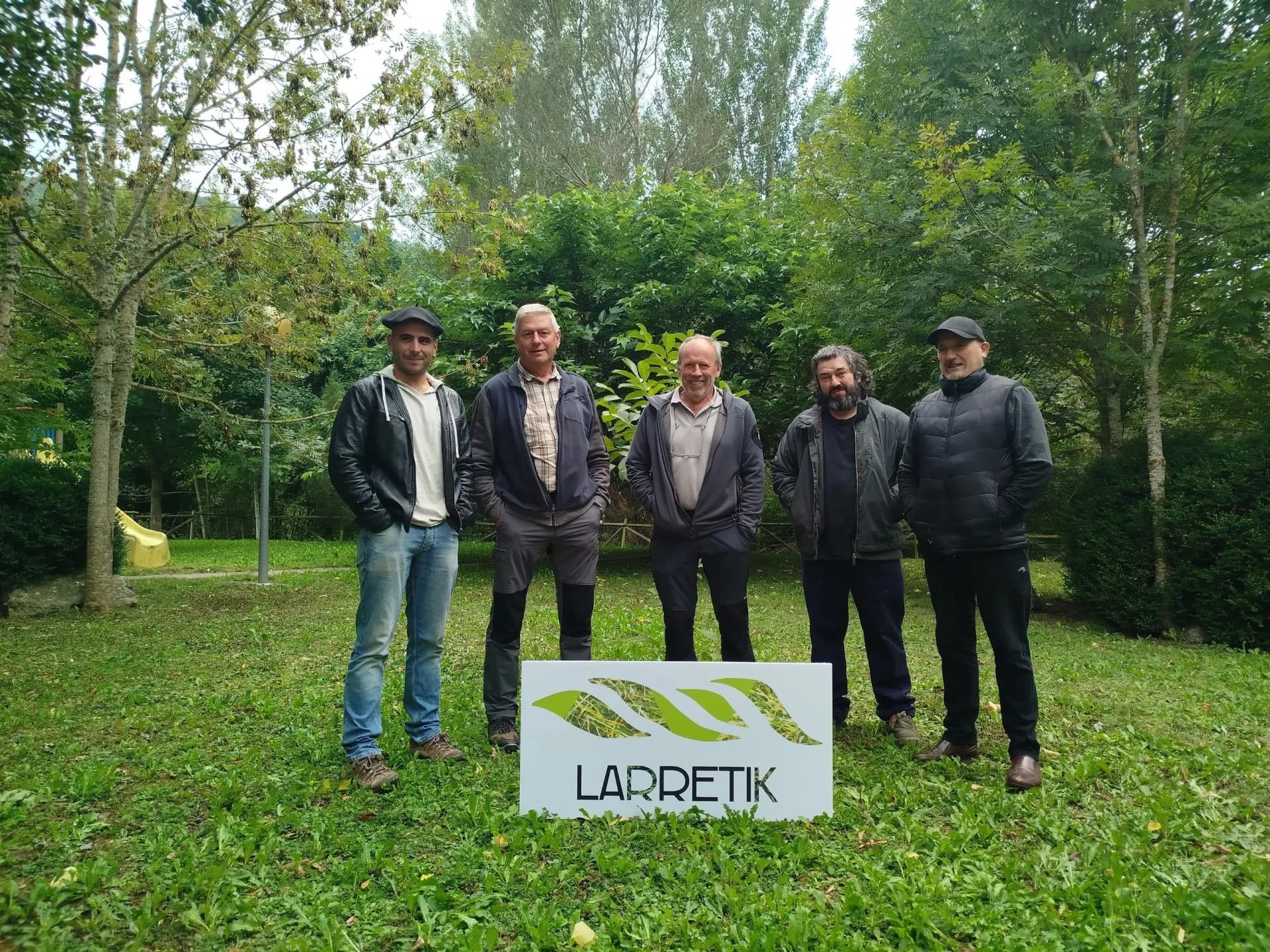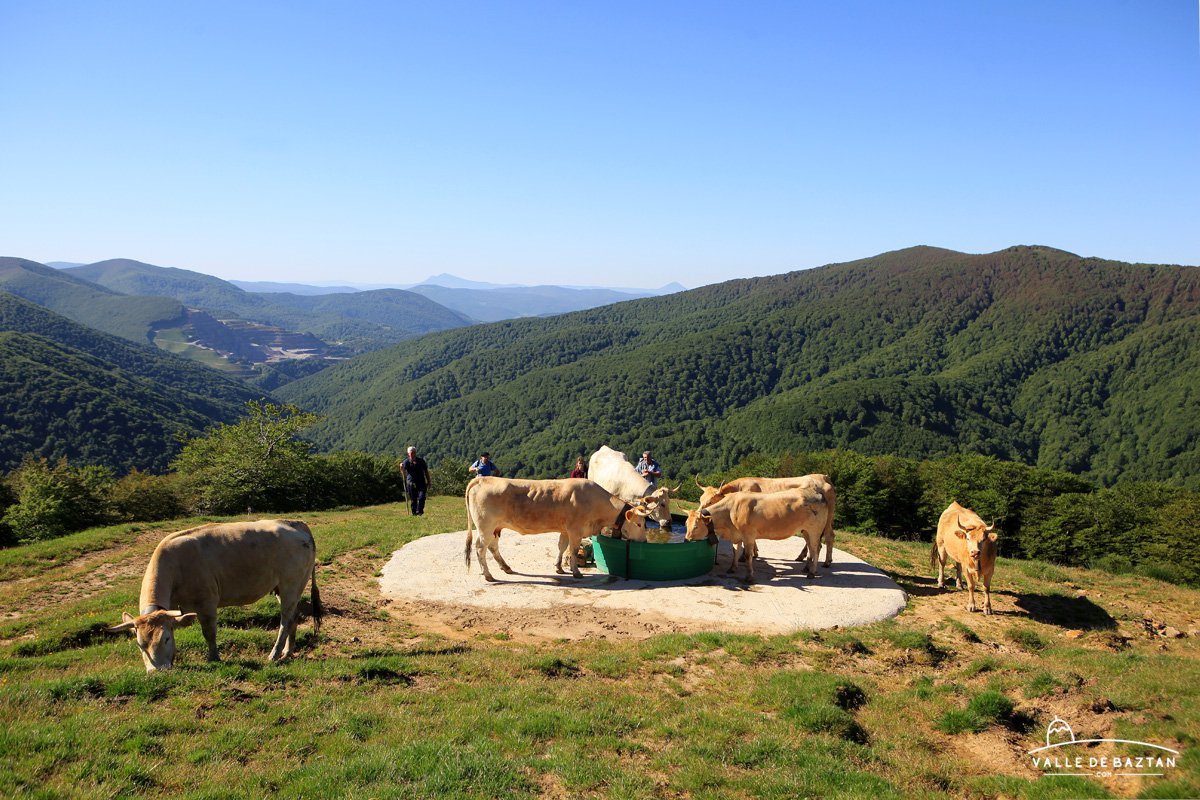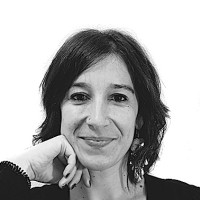"In this fast world, the work of the pastor is dignified and necessary."
- Despite being the son of the city, Roberto Urrutia, with the help of his brother Xabier, launched the Gaztstrategy project of the Txantrea a few years ago, giving continuity to the family trade. One of its objectives is to bring the city and the countryside closer together, and it is in practice: It has a herd of 300 sheep in Artaiz, and in the Chantrea district, in the Navarra capital, they make cheese. With the sheep around him, and Artzain and Beltza screaming dogs at intervals, he has answered the questions in this interview.
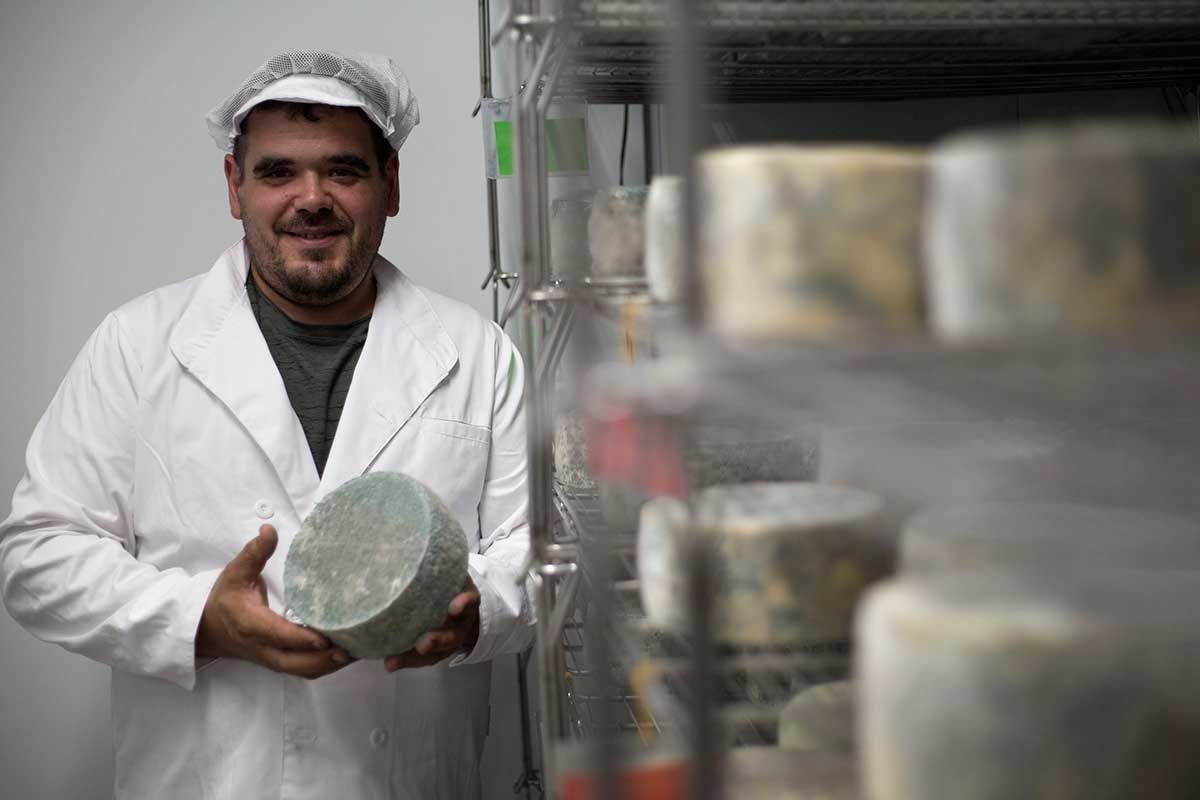
You're not the only pastor in the family.
His grandfather emigrated to America, where he worked for ten years as a pastor, between Nevada and California, spending months on the mountain. He returned with the money he had made and took a flock of sheep in Puente la Reina (in fact he was from Eugene). He took the sheep and the goats. “The Cabreros,” they said to my father’s family at Puente la Reina. His father, after emigrating to Paris and spending eighteen years there – his mother, ten – decided to return and was made with a herd, first in Magdalena [district of Pamplona], and then in the powder keg of Mount Ezkaba, on top of Orbina. There he was there for more than twenty years, pastor, until his retirement.
It is believed that he was one of the last pastors in the history of Pamplona/Iruña.
At least the last of the Txantrea and one of the last of the city.
As a city family, how did you experience the pastor's world?
I learned to walk among sheep, with my stool leading me to the sheep. My brothers and my mother – and my father, of course – had to work, but I, being the youngest, lived differently, always on the mountain, with the sheep, in the world of grazing. For us it was natural; we were sons of the pastor. And that, unintentionally, defined us.
How did you decide to keep the family rope?
At the age of 17, the sheep of our house disappeared and my brothers did not want to continue the profession. To me, the idea started spinning in my head when I was 20. At that time, I went to live outside Pamplona, to Artzibar, to reclaim a village. I started with the idea of having a herd of my own, but it was hard, because there was no exploitation. Fortunately at the time I did not go to it, and thanks to that I have been able to live other things, travel, etc. If I had tied from this young age, I would feel burned.

Anyway, you went back to the idea.
I started five years ago, at 37. In the town of Artaitz (Untzitibar) the possibility arose of renting a communal land, with a nice stable and a beautiful pasture. I saw it as an opportunity. I, from learning, I'm a social educator and I worked in a youth center. It was a job that caused me a lot of stress. I decided to leave.
Grazing is a very hard job for many people.
There are a lot of people who reject this trade, because they consider it a slave job. For me, it's quite the opposite: in this fast-paced world that we live, a dignified and necessary trade. It allows me to be in direct contact with animals and nature, as well as with tranquility and enjoyment. My rhythm of life is not urban; there are times of great workload (in the delivery of sheep, in milking, in the time of making cheese…) but the summers and winters are very quiet: the sheep are on the mountain, and the job, in fact, is to go around and make sure everything is controlled.
The cheese you do in the Txantrea, that's the particularity, it's a product of urban scope.
I started selling milk, but I lived very tight. Profitable dairy farming is involved in the production of cheese. Faced with this need, I decided to take the next step. This project consists of three phases: the first, the construction and consolidation of the herd. The second is the creation of cheese making. And the third, the one that will come, the educational one, to teach people the shepherd's world. The Txantrean family had a tailgate, and there I installed the cheese mill. It has its drawbacks, because I have to bring the milk, but at the same time we saw it as an opportunity, because the product we make with our own milk was a way to get closer to the city.
What kind of reception have you had?
People liked it. We started last year, with very low production, about 300 kilos. The intention is to make 2,000 kilos this year, and people are waiting for us. We have just begun in mid-June and are going to milk for two months. By mid-August we will have the first cheeses.
One of its intentions is to bring rural heritage closer to the city. Will the crack grow?
The rupture between the city and the rural environment is increasing, we are moving away from the natural forms of production and consumption of yesteryear. It has been Landa who has allowed us to live as a society until a few generations ago; we all have their origin in the countryside, we come from farmers and farmers. Mine is a political approach: it is necessary to maintain these production routes, which are integrated and respected in the environment, and which have a low ecological impact. There are very good industrial cheeses, but with intensive systems behind them, which are affecting the life of our planet. Small farms, in addition to being more respectful, also mean maintaining the cultural knowledge that is being lost. The countryside is being emptied and large companies are producing food violently. We are in the hands of great oligopolies that reduce our sovereignty. Living in the countryside is not only that you can create your own food; you are also losing the organization of the soil and the self-organization of peoples. So living in the countryside also has a political component for me.
was a pastor, first in America and then in Puente la Reina. He was the last pastor of the Txantrea and one of the last in Pamplona. I learned how to walk among sheep. The sheep disappeared from our house at the age of seventeen, and I immediately began to persevere in my profession. I studied Social Education and worked in a children's center when I was given the opportunity to catch a sheep herd, five years ago. Since then I've been with the sheep in Artaitz and we produce the cheese in the Txantrea. It is a way of maintaining small, integrated and respectful farms of yesteryear. For me, in addition to the trade, it is also a political attitude”.
Ubidekoak (Bizkaia) dira Imanol Iturriotz eta Aritz Bengoa gazteak. “Lagunak gara txikitatik, eta beti izan dugu buruan abeltzaintza proiektu bat martxan jartzeko ideia”, azaldu du Iturriotzek. Nekazaritzari lotutako ikasketak izan ez arren, baserri munduarekin eta... [+]
Iruñean bizi ziren Iñaki Zoko Lamarka eta Andoni Arizkuren Eseberri gazteak, baina familiaren herriarekin, Otsagabiarekin, lotura estua zuten biek betidanik. “Lehen, asteburuetan eta udan etortzen ginen eta duela urte batzuk bizitzera etorri ginen”, dio... [+]
Livestock workers seek a balance between the optimal quality of life of animals and the economic viability of production. Human beings have placed many physical limitations on the world to protect what is “our”, to protect our animals from external threats: foxes, wolves and... [+]
After a curving road we reached this vast plain. Behind all the shades of green that the fall offers, as a curtain, you saw the white and white Pyrenees. So we discovered Abaurregaina, the highest town in Euskal Herria. Next to the road, we visited the Bilobila project on a... [+]







